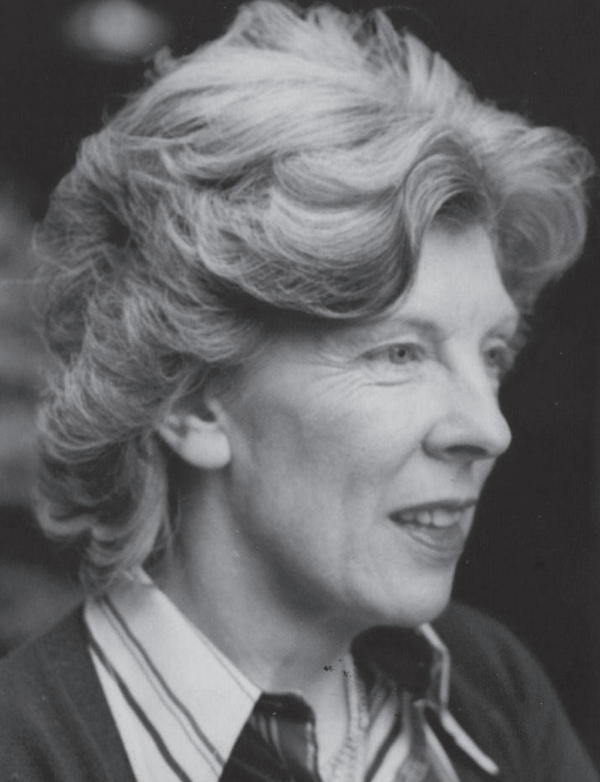On this date in 1920, philosopher and ethicist Philippa Ruth Foot (née Bosanquet) was born in Owston Ferry, England, to Esther (Cleveland) and William Bosanquet. Her maternal grandfather was U.S. President Grover Cleveland. Her mother, the only child to have ever been born in the White House, married her father, a member of the British Army’s Coldstream Guards and later the manager of a steelworks, in Westminster Abbey in 1918.
Raised in patrician circumstances and educated by governesses and at Somerville College-Oxford, she earned a degree in 1942 in philosophy, politics and economics. She worked as a researcher during World War II at the Royal Institute of International Affairs, sharing a London flat with future novelist Iris Murdoch. She married British military historian M.R.D. Foot in 1945 after he and Murdoch had broken up. The Foot marriage ended without children in 1960.
She started lecturing on philosophy at Somerville in 1947, a year after receiving her master’s, and rose to the positions of vice principal and senior research fellow before retiring in 1988. In 1974 she became a professor of philosophy at the University of California in Los Angeles, where she retired in 1991.
Foot posed her famous “trolley problem” in 1967, capturing the imagination of scholars outside her discipline. Described by The New York Times, it used “a series of provocative examples, the moral distinctions between intended and unintended consequences, between doing and allowing, and between positive and negative duties — the duty not to inflict harm weighed against the duty to render aid.
“The most arresting of her examples, offered in just a few sentences, was the ethical dilemma faced by the driver of a runaway trolley hurtling toward five track workers. By diverting the trolley to a spur where just one worker is on the track, the driver can save five lives.” The problem took on a life of its own, inspiring variations such as “the fat man” and a host of others.
“Foot was a giant of moral philosophy,” said her 2010 obituary in Philosophy Now magazine. “Her books include ‘Natural Goodness’ and two collections of essays, ‘Virtues and Vices: And Other Essays in Moral Philosophy’ and ‘Moral Dilemmas: And Other Topics in Moral Philosophy.’ These three relatively slender volumes represent decades of work at the very highest levels of philosophical sophistication.” She also wrote and lectured extensively on free will and determinism and was a pioneer in the field of virtue ethics.
Nikhil Krishnanis, a lecturer in philosophy at the University of Cambridge, described her as “temperamentally unsympathetic both to religious solutions and to mystical ones” and as “a secular philosopher of broadly liberal opinions.” (Aeon magazine, Nov. 28, 2017)
To others she was a rationalist or an atheist. Foot’s personal views on religion were nuanced and not worn on her sleeve. Nor was she simply dismissive of religion. In an interview with Philosophy Now editor Rick Lewis (Fall 2001), she said:
“What is right and wrong for different societies will often be different. Things will be justifiable in one situation and not in another. And, of course, one of the determining factors will be religion, what people believe the gods will do; will offend them or bring their wrath down on the community. After all, it would be totally wrong to bring the wrath of the gods on your community – so religion comes in, too.”
But her skepticism lurked beneath the surface: “I once asked [Oxford Catholic philosopher Michael Dummett], ‘What happens when your argument goes one way and your religious belief goes the other?’ And he said, ‘How would it be if you knew that something was true? Other things would have to fit with it.’ That I take it is the clue, that they think they know that and could as little deny it as that I am talking to someone now.” (The Philosophers’ Magazine, 2003)
She died at home in Oxford, England, on her 90th birthday. (D. 2010)

